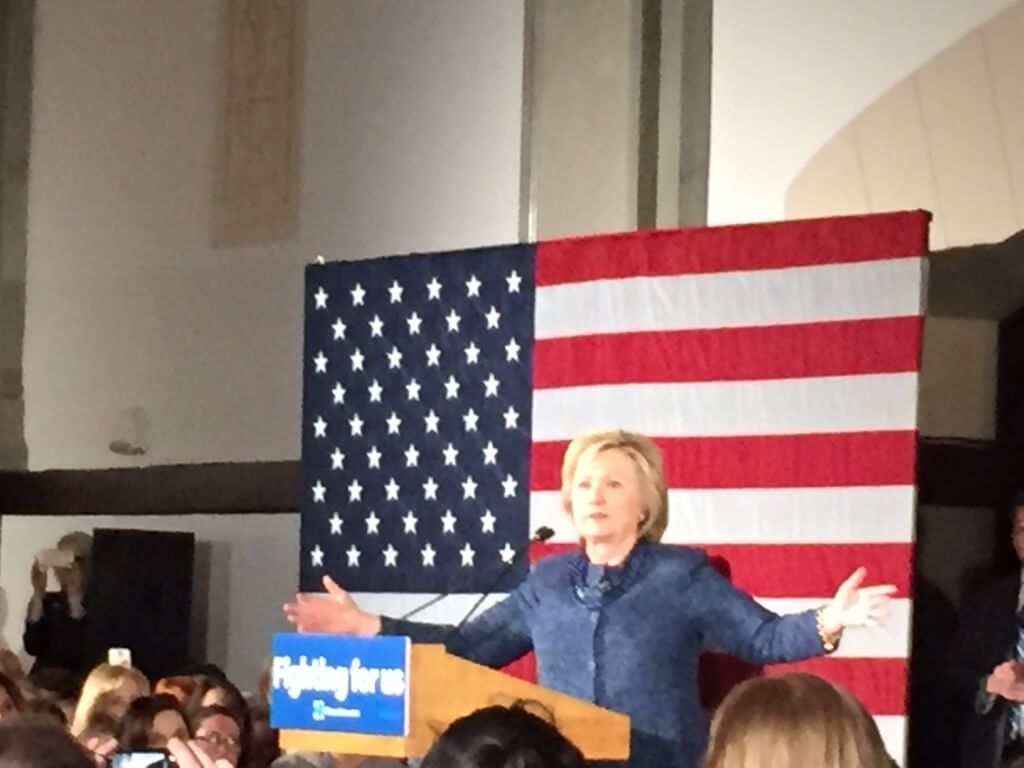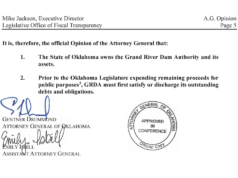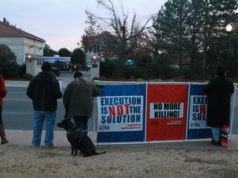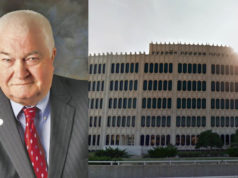(Editor’s Note: Vital Conversations is a running series of commentaries from various faith leaders. The series is sponsored by Phillips Theological Seminary, though contributions come from theologians who are unassociated with the seminary. To submit work for Vital Conversations, simply email Editorial@NonDoc.com.)
I was standing behind a daughter and father in the grocery store check-out line. The little girl, who looked to be around 5 years old, had been looking me up and down, trying to figure out what to make of me while we waited. I wore a clerical collar with a dress and high heels.
Finally, her curiosity got the better of her, and she asked, “Are you a pastorina?”
She recognized that I was part of the religious community, but could not quite figure out how I fit — a woman and a pastor? In her mind, “pastor” was a gendered word, so she made up a word that, in her mind, acknowledged my gender and calling. I gave her credit for being quick on her feet. She had never seen a woman wearing a clerical collar. Apparently, neither had her dad. He quickly corrected her: “No, she’s a nun.”
For the record, I am neither a pastorina nor a nun, although I do not object to being called a pastorina, and I know some very nice nuns. I am your typical, mainline Protestant Christian minister, but clergywomen are not quite as common in this part of the country. Other than being the cause of some confusion, being a woman plays a critical role in how I read and interpret the sacred stories of my tradition.
Take, for instance, the story of this current season — the birth of Jesus. I tend to read this story from the perspective of his mother, Mary: an unwed pregnant teenage peasant girl.
At first, things do not look good for Mary. Her fiancé is considering his options, which include dumping her (at best) and having her stoned to death (at worst). Her instinct is to find help. She finds refuge at her cousin Elizabeth’s house and stays there for quite some time. In the end, everything works out for Mary because she finds enough care and support.
I cannot help but wonder how things would have worked out for Mary if she had been an Oklahoman?
Her pregnancy would certainly be high-risk. Almost one in three mothers less than 20 years old lacks prenatal care as early as they want. Mary came from a low-income family. After giving birth and losing eligibility for SoonerCare, Mary would most likely be one of the estimated 17 percent of Oklahomans living without health insurance, falling into a gap that includes people who don’t qualify to receive tax credits for private insurance under the Affordable Care Act. Oklahoma has so far chosen not to expand Medicaid to offer coverage for most poor adults. That’s too bad for Mary, since research shows women who are uninsured often have inadequate access to care, receive a lower standard of care when they are in the health system and have poorer health outcomes.
It doesn’t have to be this way. The Center on Budget and Policy Priorities reports that nearly 6 million women between the ages of 19 and 44 who do not have insurance could gain health coverage if all states expanded their Medicaid programs. The Kaiser Family Foundation reports that most studies done on the impact of Medicaid expansion for pregnant women conclude that expansion improves prenatal care use, as well as increases health care visits overall so that they are less likely to delay or go without healthcare because of costs. Furthermore, compared to low-income uninsured children, children enrolled in Medicaid are more likely to be healthier and have fewer unmet needs. Overall, Medicaid and other health care coverage increases healthy outcomes for women and their babies, short and long term.
Would Mary have had access to this help in Oklahoma?
Last month, Oklahoma Governor Mary Fallin requested the termination of Planned Parenthood contracts in Oklahoma. While the termination was recommended because of alleged billing discrepancies, it is no secret that Planned Parenthood has long been a target for anti-choice health activists and politicians. Last year alone, Planned Parenthood of Central Oklahoma (PPCO) provided health and education services to almost 20,000 Oklahomans. Shutting down PPCO would only make it harder for women who are uninsured or struggle with the cost of health care to receive the care they need during pregnancy and beyond.
RELATED
“Hillary Clinton calls for Medicaid expansion at Tulsa rally” by William W. Savage III
The legislative session is just around the corner. There are concrete ways for us to take better care of our fellow Oklahomans, not the least of which is to expand Medicaid. This Christmas, remember that Mother Mary would have faced the increasing challenges of being low-income and uninsured in Oklahoma.
Call our governor. Call our legislators. Let them know that we need to apply the Oklahoma Standard to those who are the most vulnerable among us.
There’s no telling who you might help.
Sincerely,
Your Friendly Neighborhood Pastorina
Previous installments of Vital Conversations
Faith community dialogue: Criminal justice reform
Save persecution label for when liberty is endangered
Science, religion agree: ‘We are part of nature’
Ten Commandments: Reactions spur moral discussion
Vital Conversations: Christianity needs a Jon Stewart
Imam: A Muslim is your brother from another mother
Pope’s visit should ‘enrich our impoverished discourse’























